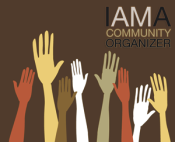While on a trip to Olinda, in the Recife state of Brazil, I stayed at a little "pousada" (bed and breakfast), where the receptionist, a Black Brazilian woman, invited me out for a drink. In the course of the evening, we drank at a pub (she beer and I Coke with lime) in multi-skin-colored crowd that included people from all over Brazil. When a musical troupe marched down the street serenading the public with violins, guitars, drums and singing, we followed along for almost an hour. Most of the musicians seemed to be of Portuguese descent, but I noticed with pleasure that a Black man was playing the sax.
From there, we proceeded to an ancient pub with five-meter arches over the front doors, wood floors and unfinished brick walls. Again, the bar and each table within the bar had a multicolored crowd. The Black woman who had invited me recognized two white men at a table, hugged them warmly, like old friends, and we sat down to have drinks and conversation. Another Black man joined us.
At some point in a wide-ranging that touched upon architecture, culture and history, I noticed that one of the white men had interlocked his knees with those of the Black woman who had invited me. And then they shared a deep and enduring French kiss that made me think they must be old and intimate friends.
I felt "uncomfortable," which is a word one typically uses when one either doesn't know one's feelings well enough to describe them or doesn't want to own and take responsibility for them. 'Why was this white man kissing a Black woman and why was she kissing him back,' I wanted to know?
I made an effort to seem unconcerned and unphased by their kiss. I didn't mention it and I endeavored to maintain normal eye-contact and not display my feelings.
But, I felt jealous, because I thought that Black women should be reserved for Black men. I felt vaguely angry, suspecting that he might be using or taking advantage of her in some way, although the kiss was plainly consensual and mutually enjoyed. I felt, perhaps, afraid that they would realize I felt these feelings, and I feared that would hurt my friendly interaction with this friendly group.
So, I clearly had color-aroused ideation, about what "should" be: (Blacks intimately with Blacks and whites with whites, and this Black woman with me before she was with a white man). But I feel ambivalent about these thoughts, so I was afraid to "own" them publicly.
As a result of my ideation, I felt mild anger, jealousy, and fear that I would be discovered having these feelings.
So, what was my behavior? I "pretended" not to feel what I did, I "acted" like I was "color-blind" when, in fact, quite aware of my own color-aroused feelings and thoughts.
I was able to quickly "let go" of these thoughts and feelings, without obsessing about them or acting upon them. I'd say that my I manifested my thoughts and feelings in "mild" behavior (pretending not to be color-aroused, dissembling). I would say that my behavior was not moderate (e.g. arguing with the kissers or getting up and leaving, which might have left us estranged and terminated the social interaction negatively, for the present and the future). I certain that my behavior in the situation was not "extreme" (e.g. overturning a table to punch someone in the face, which might have resulted in arrest, conviction, civil fines, etc.).
Most importantly to me, I refrained from any imappropriate outward and overt behavior. I believe that if everyone who experienced color-arousal were able and willing able to exercise sufficient self-control to avoid "mild" and "extreme" color-aroused behavior, then the world would be a safer and more productive place for everyone, Black and white and otherwise.
Sunday, 27 May 2007
How do You Respond to Polychromatic Public Displays of Affection
Subscribe to:
Post Comments (Atom)



No comments:
Post a Comment